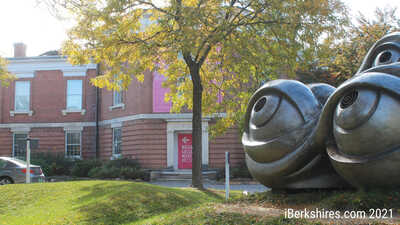WCMA Summer Program
WILLIAMSTOWN, Mass. The Williams College Museum of Art (WCMA) will host a summer program series on three Tuesdays this July in the exhibition SO–IL \ WCMA: Building a New Museum.
Visitors can learn about the plans for the new WCMA, get a behind-the-scenes look at what the museum has in store for the new building, and offer their own thoughts about the future of WCMA.
Each program will begin at 5 p.m. and will be followed by a patio party at 6 p.m.
The series kicks off on Tuesday July 9, with EDU 101: Exploring Education. WCMA's engagement curators will discuss how they are imagining education in the new museum in an informal setting with activities and demonstrations beginning at 5 p.m. At 6 p.m., move outside for a celebratory after-school patio party with ice cream and art-making projects for kids and drinks for the adults.
Summer School continues Tuesday, July 16, with ARTH 101: Preparing Collections. Collection curators Kevin Murphy and Elizabeth Sandoval will share and discuss four artworks as they demonstrate the close-looking techniques they use in the collection assessment currently under way at WCMA. During the session, which begins at 5 p.m., they will touch on issues surrounding the artworks, including provenance, conservation goals, and research opportunities. At 6 p.m., move outside for a celebratory after-school patio party with drinks, snacks, and an interactive activity exploring our collection.
The series concludes Tuesday, July 23, with ECO 101: Celebrating Sustainability. You will have the chance to chat directly with WCMA staff and project architects about the many ways our new museum prioritizes sustainability. From 5 to 6 p.m., visitors can drop into the SO-IL \ WCMA: Building a New Museum exhibition to discuss the future in an informal setting. At 6 p.m., move outside for a celebratory after-school patio party with snacks, drinks, and an art-making activity.
Located at the western entrance to the Williams College campus at the intersection of Routes 2 & 7, the new Williams College Museum of Art is conceived to serve the college, the local community, and visitors to the Berkshires. Site work will begin in the summer of 2024, with the new museum set to open in 2027.
Tags: WCMA,

